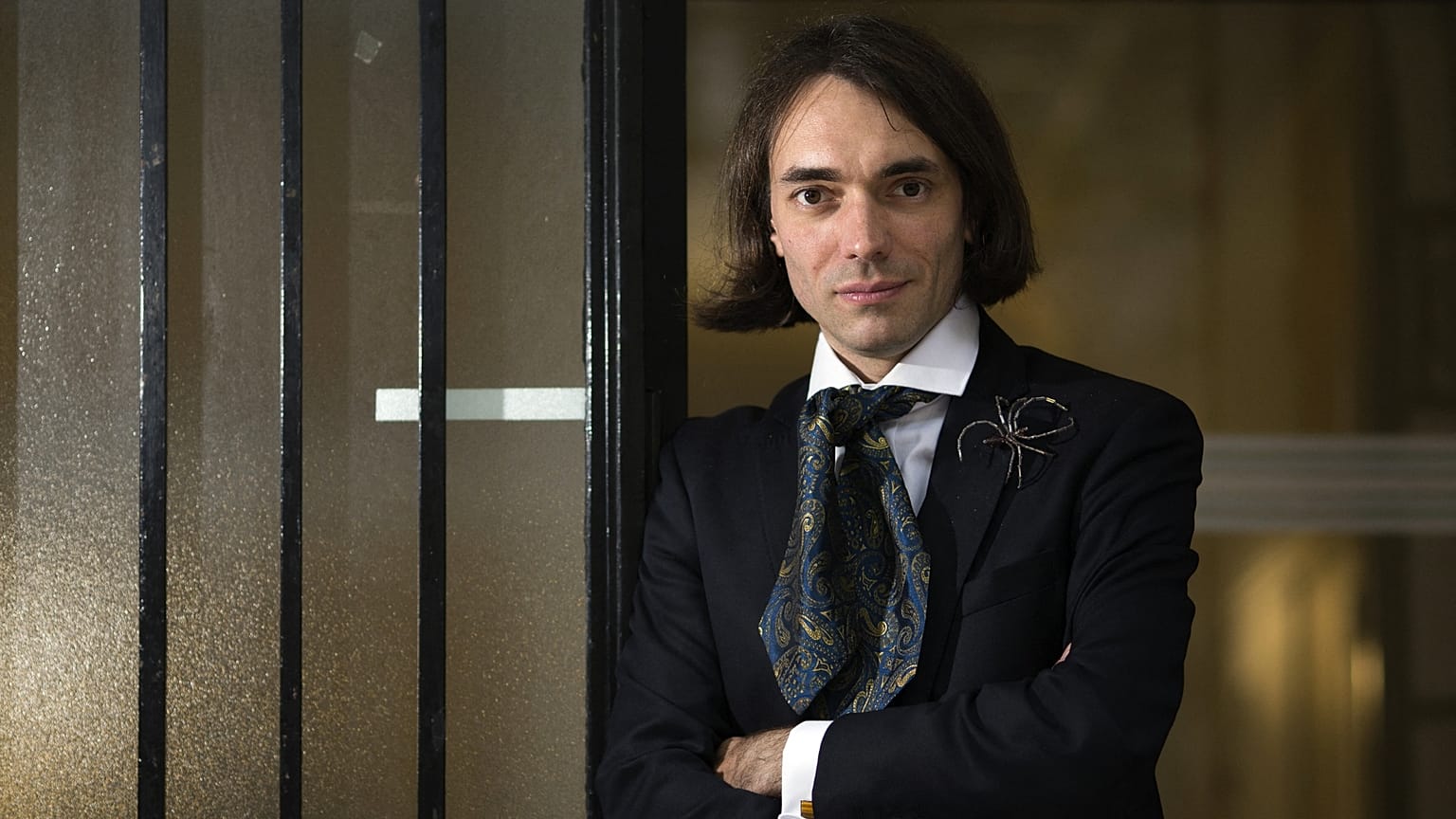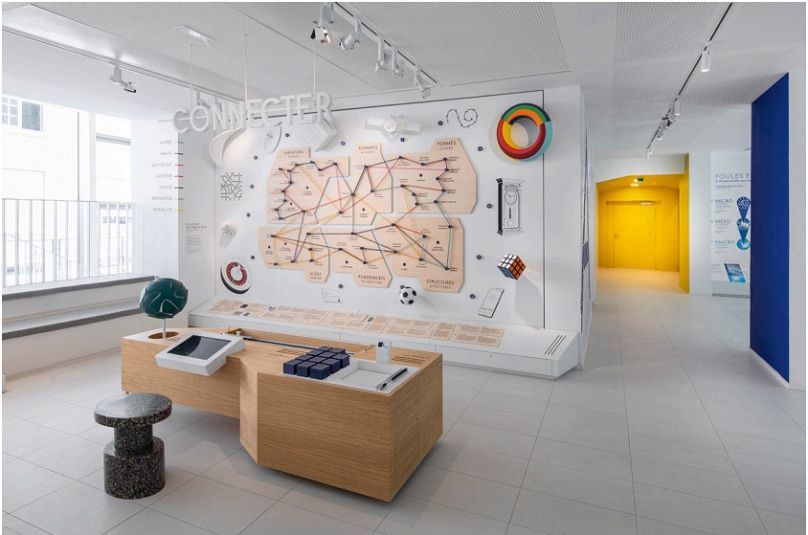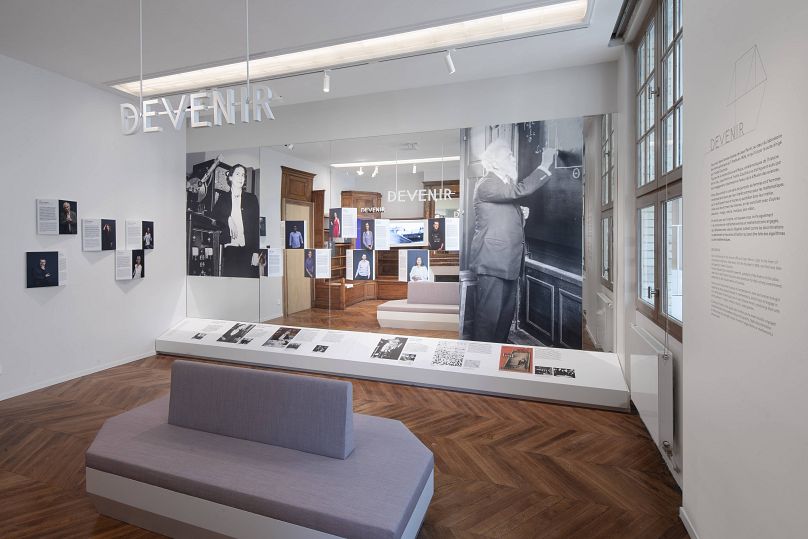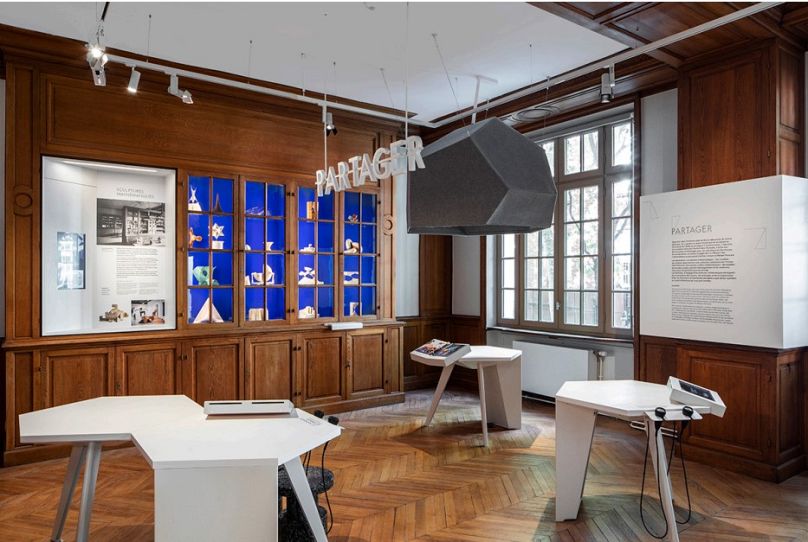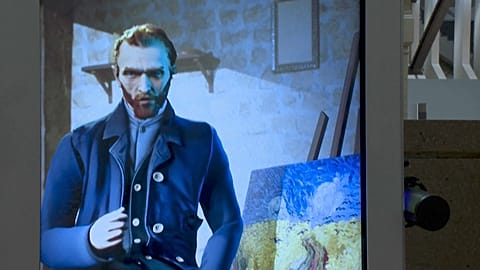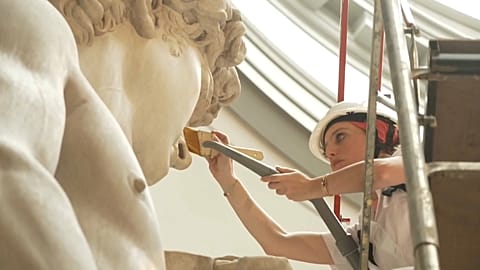How can France get its students to love maths again? Researchers hope a new Paris museum dedicated to the discipline could be the key.
Maths is everywhere - it’s behind the streets we walk on, the homes we live in and the phone you may be reading this article on.
 ADVERTISEMENT
ADVERTISEMENT
 ADVERTISEMENT
ADVERTISEMENT
But while maths can help us better understand the world we live in, a large percentage of the world’s population has trouble understanding maths. And France is struggling more than other European nations to keep students interested in the discipline.
To battle that trend, the Institut Henri Poincaré in Paris has designed a museum dedicated to maths and its applications – the first of its kind in France.
The Paris Mathematics Museum, also called the Maison Poincaré after the great French mathematician and theoretical physicist, opened its doors to the public on Saturday 30 September.
The museum is the brainchild of Cédric Villani, a former MP and mathematician who was at the head of the Sorbonne University’s Institut Henri Poincaré (IHP) from 2009 to 2017. He’s been working on the idea of a museum dedicated to maths for the past 10 years.
The new head of the IHP Sylvie Benzoni says the museum opens “in a context where societal stakes related to maths are more present than ever… Our idea is to create a dialogue between scholars, the public, and researchers who frequent our institute.”
Bringing maths to the masses
Located in the heart of the operating research centre, the Paris Mathematics Museum is appropriate for all levels of understanding starting from secondary school maths, which corresponds to the “minimum theoretic level of the general public” according to Benzoni.
The 900 square-metre space in Paris’ Latin Quarter aims to make maths more accessible by showing the human faces behind the discipline, as well as its practical applications.
Permanent exhibitions are characterised by verbs – connect, become, invent, model, share, visualise – to “show maths in action.”
Through the museum’s multi-pronged approach, visitors get to experience maths differently by watching videos, playing games, interacting with the installations and listening to audio guides.
An immersive audio experience introduces a “formula whisperer” to decrypt mathematical jargon, while a series of Man Ray photographs shows geometric shapes and objects.
There is also a space dedicated to the great minds who have influenced mathematics throughout history, like Jean Perrin, who won the Nobel prize in physics in 1926 and whose desk is displayed at the museum.
On top of the permanent exhibitions, a temporary exhibition space will find creative ways to address timely topics that touch upon mathematics. The first temporary exhibition is called “Enter the World of AI,” and runs until 4 April 2024.
The Mathematics Museum opens as recent studies show France has been lagging behind other European nations in maths.
In the 2019 edition of the global Trends in Mathematics and Science Study, which looks at the level of maths in 600,000 students, France ranked last out of all other EU member states.














